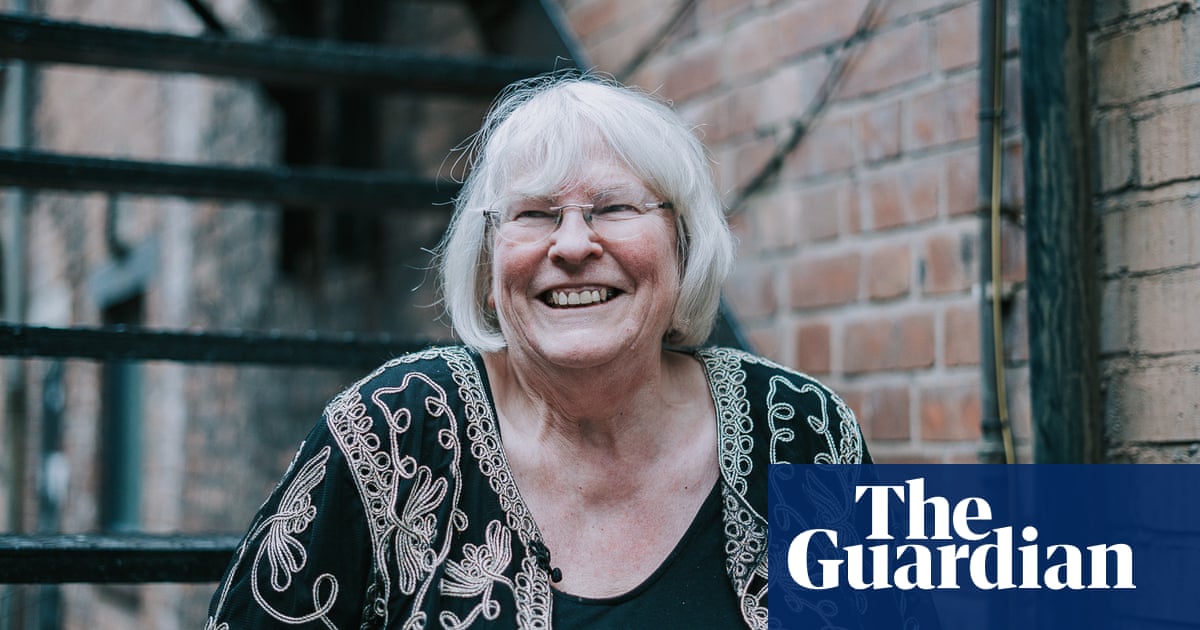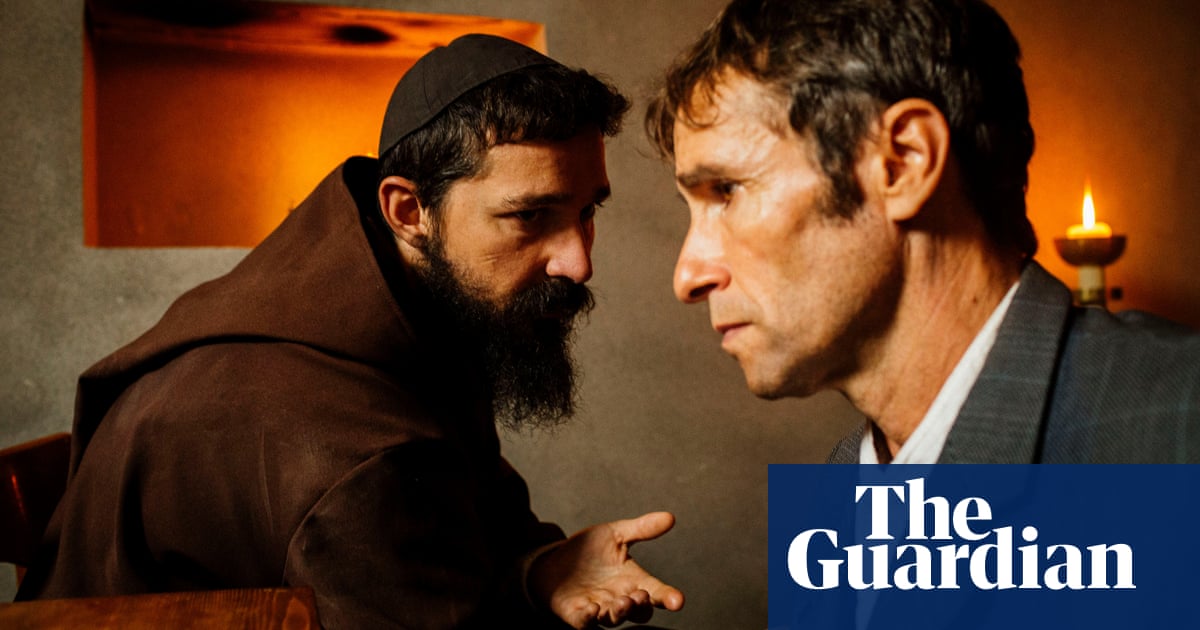
t is a bright April afternoon, and Yung Lean is strolling down a Stockholm street, iPhone aloft. The rapper – real name Jonatan Leandoer Håstad – is fresh from a boxing session and heading to his favourite cafe for a post-workout meal. “Check this out – there’s people walking around!” he says, rotating his phone to reveal a moderately busy main road. As we speak, Sweden is one of the few European countries not in coronavirus lockdown, and watching the 23-year-old interacting with unmasked strangers as he goes about his business borders on the surreal.
Yet this is by no means the most jarring thing about our video encounter. That would be Håstad himself, who is smiley, switched-on and, save for the neck tattoos that creep from his collar, thoroughly conventional in appearance. He in no way resembles the sullen teen in a bucket hat whose atonal raps about sex, drugs, sadness and Oreo shakes won him a global following and a critical mauling in the mid-2010s. A 16-year-old white, middle-class Swede embracing gritty rap glamour and peddling a gaudy early-internet aesthetic, Yung Lean was treated as a novelty; these days, Håstad is having the last laugh. Rather than a lost-in-translation curio, he is now considered a pioneer in emo-rap, the hugely popular strain of hip-hop in which mumbled lyrics about intoxication and alienation meet trap beats, spaced-out instrumentals and melodic hooks.
“I was definitely ahead of my time, but I don’t think I single-handedly changed the route of modern hip-hop,” says Håstad as he lunches alfresco. He attributes his prescience partly to watching early trailblazers such as Lil B and Chief Keef and realising “this is going to stick for the next 10, 20 years”, but also to his unique mix of influences. “One of the bands that I was inspired by as a kid was [90s rockers] Broder Daniel, who are really big in Sweden – the first [Swedish] emo band.” He was also “hit the hardest” by the introspective side of gangsta rap – Geto Boys’ Mind Playing Tricks On Me, the “sad 50 Cent songs”. Alongside his Sad Boys production collective, he consolidated his influences into a sound. “It all came together,” he shrugs. “It made sense.”
It was a hunch borne out by the style’s enormous popularity, but such vindication has one unfortunate side-effect: what was once shockingly distinctive now sounds relatively humdrum. It is a problem Håstad tackles head-on on his upcoming fourth album Starz by considerably expanding his remit. Running alongside his melancholic signature sound are bouncy pop-punk, shoegaze and industrial rock. The result is a record that is meatier and more rounded than any of Håstad’s previous work.
Starz is also the first album Håstad has made sober – or something close to it. Emo-rap has been ravaged by drug-related casualties – major figures such as Lil Peep and Juice WRLD have died in recent years – and Håstad’s own substance abuse issues led to him being admitted to a psychiatric ward in 2015, then, eventually, adopting a more clean-living lifestyle. “I’m not going to lie, we did drink a little codeine when we recorded [Starz],” he shrugs. “But the main thing is that I stopped drinking and doing other drugs.” His early songs were characterised by narcotic references (his moniker plays both on his name and the codeine-based cocktail), but Håstad doesn’t think drugs are a “big part of Yung Lean”, claiming he only focused on them in order to give himself a USP. “I did think: ‘What’s going to make a difference between me and other rappers?’ I thought it was funny, a 16-year-old kid rapping about coke.”
Håstad’s sense of humour is one of his most perplexing dimensions. He is clearly amused by aspects of the project – calling his crew Sad Boys was something they were “joking about” before they actually did it – but equally adamant that the whole thing is straight-faced. “Some people thought it was ironic and some people were like: ‘He’s genuine, he’s just a bit strange.’ And in real life, I was genuine and a bit strange!” he laughs. “I was never a clown, always more of an outsider.” He certainly wasn’t satirising hip-hop by rapping badly on purpose, as some have suggested. Instead, he is keen to stress his long-term dedication to the art, recounting teenage escapades such as freestyling for hip-hop group Bone Thugs-n-Harmony. “We knew they were in town, and I was really hungry to be a rapper. My friend filmed it and I started rap-battling Krayzie Bone – I was this annoying 15-year-old kid with curly hair.”
Despite Håstad’s lifelong love of rap, he has actually made some of his best work in completely different sonic universes. He records atmospheric punk with his band Död Mark and last year, under his Jonatan Leandoer96 alias, released an album called Nectar, a brilliant scramble of C86 indie, new wave and garage rock. The latter project, says Håstad, was motivated by a drive to sing lyrics that were “brutally honest”. Earnestness is an idea he frequently returns to in conversation. “When you take away all the internet trends, the drugs, it’s just about one thing: is this music genuine, is this real emotion?”
For all the hipster value, debauched living and confounded commentators that have orbited his career to date, Håstad says it needn’t be so complicated: these days, Yung Lean is simply the sound of him baring his soul. “After a while, you put yourself out there,” he says. “If you listen to all my music, you’ll find me.”
Starz is out Friday 15 May












